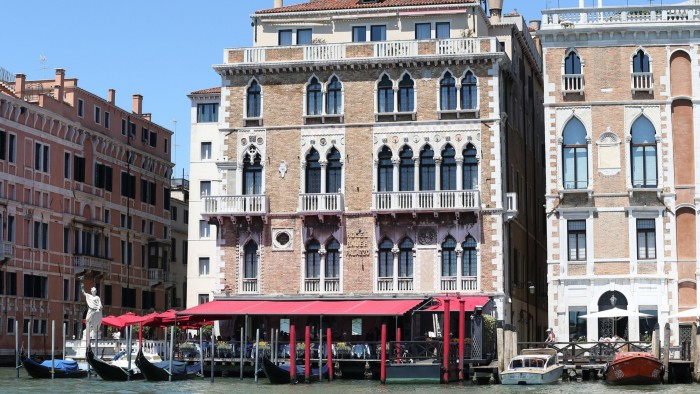Many wealthy people who watched the hit comedy-drama series White Lotus, set in luxury resorts around the world, may have been inspired to book a stay at a five-star hotel. But some companies have fared even better by purchasing entire facilities.
A bidding war for Venice’s Hotel Bauer broke out earlier this year, with global investment firm Mohali Hospitality beating out an offer from billionaire Bernard Arnault and others, Bloomberg reports. And last year, entrepreneur and PR guru Matthew Freud opened the Bull Hotel in Burford, in the Cotswolds region of central England, and more recently opened a second hotel in the town, The Highway Inn. I opened it.
Family offices are also acquiring hotel assets, particularly in the Asia-Pacific region, according to global real estate consultancy JLL. The newspaper said hotel transactions in the region rose 19% year-on-year in the first half of this year, reaching a total of $5.7 billion.
Hotels have long been an attractive option for sophisticated investors. But the asset class is now even more popular among high-net-worth individuals and their family offices, as the travel industry recovers post-pandemic and hotels can capitalize on rising inflation by updating prices daily.
Kristin Curtis, head of global family offices at BNY Wealth, said there is “definitely interest” in hotel investments among her firm’s family office clients. “It really acts as an inflation hedge because property values tend to rise over the long term and room rates rise with inflation,” she explains. “(Hotels) serve as a store of value and a source of income, both of which are important priorities for asset preservation.”
A recent survey of 189 family offices by BNY Wealth found that real estate is the third largest asset allocation class after private equity and public equity, with hospitality assets including hotels a major area of interest. It turns out, Curtis points out.
Will Turner, director of fund services at JTC Group, agrees that real estate assets, which also operate businesses such as hotels and resorts, have become popular in an environment of rising inflation and interest rates since the pandemic and the war in Ukraine. . “Hotels generate revenue every day, so they can set prices dynamically to reflect their cost base,” he points out.
There is a “huge value-add opportunity” for hotels, Turner added. “It’s not just room rates; there are a lot of cross-sale opportunities in food and beverage, healthcare, spa, shopping, and more.”
The most popular type of hotel investment is in cities that attract both tourists and business travel. Events that can also benefit from the surge in demand caused by music, sports, and cultural events (such as Taylor Swift and Beyoncé’s world tours) are even more attractive.
Fund managers Turner spoke to highlighted Western Europe, particularly the UK and Switzerland, as the regions with the most attractive investment opportunities. Nikhat Erkan, chief executive officer of JLL’s Asia Pacific Hotels and Hospitality division, said family offices looking to invest in hotels should “purchase in major gateway cities such as Singapore, London, Tokyo and Paris. He says there is a tendency to “do it.”
But for those interested in investing in hotels and resorts, it’s important to accept that this asset class is “highly cyclical,” says Fairview Investments director and co-founder. One Ben Yearsley warns. This means that hotel investments ebb and flow with economic cycles of growth and recession.
“As soon as the economy picks up, you see the hit,” added Kevin Brown, a senior equity analyst at Morningstar who specializes in hotels and residential real estate investment trusts (REITs). “When we go into a recession, the first thing everyone does is cut down on unnecessary travel, starting with shopping. . . . That’s why every time there’s a recession, hotel revenue and profitability plummet.”
Hotel business models also face challenges from short-term rental providers, especially Airbnb.
Finding investment opportunities can also be difficult. Hotels are a relatively difficult asset class to gain direct exposure to, both because of the cost of purchasing individual properties and because of their illiquidity, meaning they are difficult to buy and sell quickly.
As such, they are typically only suitable for sophisticated investors, who have options ranging from co-investing with private equity firms to directly buying hotels and investing in publicly traded REITs.
Brown says publicly traded REITs are the best route into this asset class “unless you’re a large institution with hundreds of millions of dollars to invest.”
BNY Wealth’s Curtis added: “If a family office doesn’t have specific expertise, we think the fund is a good way to gain exposure to this area.”


